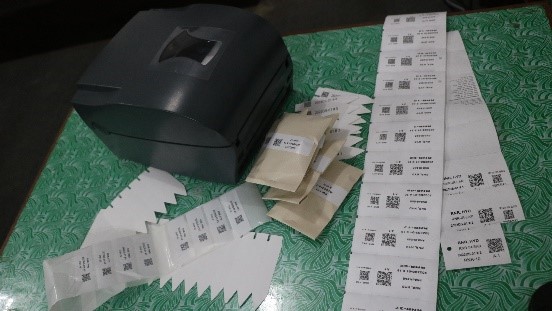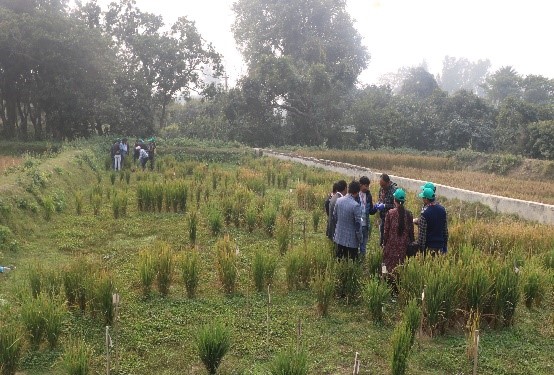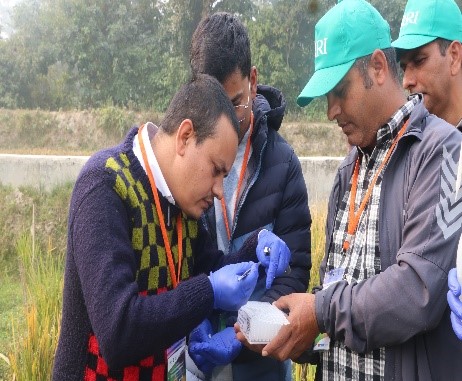In collaboration with IRRI, and CGIAR Excellence in Breeding Platform, a three-day training workshop on “Breeding Program Modernization to Enhance Genetic Gain in Crops” was held at the National Rice Research Program (NRRP), Hardinath, during Dec 12–14, 2022. The main objective of this training workshop was aimed to accelerate genetic grain in the diverse crops program in Nepal through enhancing the technical capacity of the crop breeders on modern technologies in breeding, digitalization in data capturing and market segment assessment. A total of 19 participants (breeders) from different stations of Nepal Agricultural Research Council (NARC), Agriculture and Forestry University, and IRRI-Nepal. Dr. Sanjaya Katiyar, Lead of Excellence in Breeding Platform, IRRI, CGIAR, Dr Reshmi Das and Dr P. Janaki Ramayya, IRRI, served as the resource persons.
In the inauguration session chaired by Dr. Ram Baran Yadav, Coordinator, NRRP, Dr. Shreemat Shrestha, Director of Crop and Horticulture, NARC, elaborated NARC’s priority in modernization of breeding program in major 4 food crops (rice, maize, wheat and potato) to attain food security in Nepal and also expressed that this training workshop will contribute to enhance the efficiency of the scientists to develop climate resilient high yielding varieties as per the market demand. Similarly, the special guest, Dr Krishna Dev Joshi, IRRI Country Representative Nepal, explained the importance of market segmentation in breeding program and also expressed IRRI’s commitment to provide technical support for strengthening NARS. In this session, Dr Sanjay Katiyar delivered lecture NARES Breeding Program Modernization to Increase Rate of Genetic Gain.
There were four technical sessions during the course of the three-day training. The first technical session covered Speed Breeding to enhance Genetic Gain: NARES Friendly Cost- effective Technologies. Cost-effective speed breeding techniques to improve genetic gain by advancing segregating materials by field rapid generation advance method to shorten 5–6 generations cycle is included in this session. The second technical session covered Smart Breeding to increase selection efficiency in which Digitization in Plant Breeding and Barcoding & Electronic Data Capture were also included. The third session included HT SNP Genotyping and hands on Sampling for HT SNP Genotyping. Using a leaf puncher and 96 well sampling plate, the trainee developed the ability to collect leaf samples for genotyping. The forth session was on breeding bioinformatics, which included theoretical and practical training on data management and analysis. Both the Cropstat7.2 version and the PB Tool were used to randomize and experimental design. Data analysis for both randomized complete block and alpha-lattice designs was done on experimental data from single and multiple environments. On the final day the trainees evaluated this training as a very useful training for modernizing our breeding systems and enhancing their efficiency.





